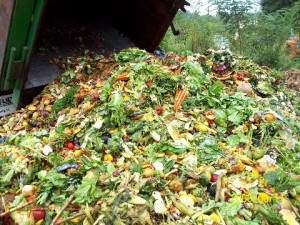France’s Radical Food Waste Law Is Our Future
A study in 2010 found that in the United States alone, 133 billion pounds of food went uneaten. 40% of available food in the U.S., costing $161.6 billion, was thrown away. Around $48 billion in meat, $30 billion in vegetables, and $27 billion in dairy products were lost.
More recently, in 2014 a study found that 48.1 million Americans are hungry and have a limited or uncertain access to food. Of the 48.1 million, 15.3 million of them are children and 5.4 million are senior citizens.
It is undeniable that the U.S. is throwing away food that can end hunger in our nation. But what can we do to fix this? In France, the French government enacted a law that forced supermarkets to donate unsold food instead of destroying it. Any supermarket that fails to comply they must pay a fine of ‚¬3,750 (or roughly $4,200).
Can the U.S. enact a law like France; a food waste law? What would a food waste law look like in the United States? Is it even possible to force supermarkets to donate unsold food?
Can the U.S. Enact A Food Waste Law?
The United States has a unique judicial system unlike any where else in the world. It may seem like American values uphold the independence of the small business owner. But the judicial system has a history of upholding legislation that regulates business for the public good.
Legislation like the Fair Labor Standards Act (FLSA) heavily regulates employers. The FLSA set labor guidelines such as wages/overtime and adherence to child labor law provisions. It regulates both public and private sectors of business. In fact, it was a key judicial decision that prompted the creation of the FLSA. For the first time, the court restricted businesses to protect the health and safety of the public. 
It is not a leap to say constant access to food is an aspect of public health and welfare. When 48.1 million Americans are not sure when or what their next meal is, then 48.1 million members of the public have their health at risk.
Politicians will debate about the risk to the U.S. economy. Pundits will say it is a gross overstep of the federal government. But the reality is that hunger and lack of adequate nutrition of United States citizens needs to be addressed.
A food waste law may get us there.
Would a Food Waste Law Work?
If the U.S. were to follow France, a food waste law will fine supermarkets or food distributors for destroying or throwing away unsold food. The concept seems straight forward. But how would this law be enforced? Would the American public be on board with it?
Those that oppose a food waste law argue that companies already have tax incentives to donate food. Businesses can get a tax deduction if they donate unsold products. But a great deal of food waste comes from expired foods. Under U.S. law and regulation, markets are allowed to sell food after the expiration date. The food only needs to be “wholesome and fit for consumption.”
But when the product’s “best by”, “use by”, or “sell by” date has passed, it is less likely that it will sell. Even the Food and Drug Administration (FDA) and manufacturers admit that the dates are just an approximation.
Food banks that would disturb the unsold food will give “expired” food to the public. They must regulate and make sure the food is still edible and reassure the public that the “best by” date is not indicative of the food’s quality.
The unsold food donated to food banks will be near or passed their sell by date. The conspicuous sell by date will deter or concern many people who receive the food. The food may be perfectly safe, but some food banks may not distribute “expired” food as a matter of policy.
Food banks will also need to expand storage to hold items that need refrigeration. Distributing milk, eggs, and frozen foods will add to the quality of diet of 48.1 million Americans. But storing them will create a huge cost for the food banks. Even without a food waste law, food banks are often under funded and unable to store dry, non-perishable goods.
Food Waste Law Is Still Necessary
There are an endless number of roadblocks to providing 133 billion pounds of wasted food to 48.1 million hungry Americans. Food banks need more money to operate. The “best by” dates on products need to be accurate or eliminated. The tax deduction for donating food must be greater to be effective.
But these obstacles should not stop us from preventing 40% of our food being thrown away. France’s food waste law is not a new idea. But it is a new course of action. Their law is comprehensive and productive. Yes, it will require large amounts of money to enact and enforce it. But it is the right step to make, and one that all mass producing nations will need to do in the future.


Comments